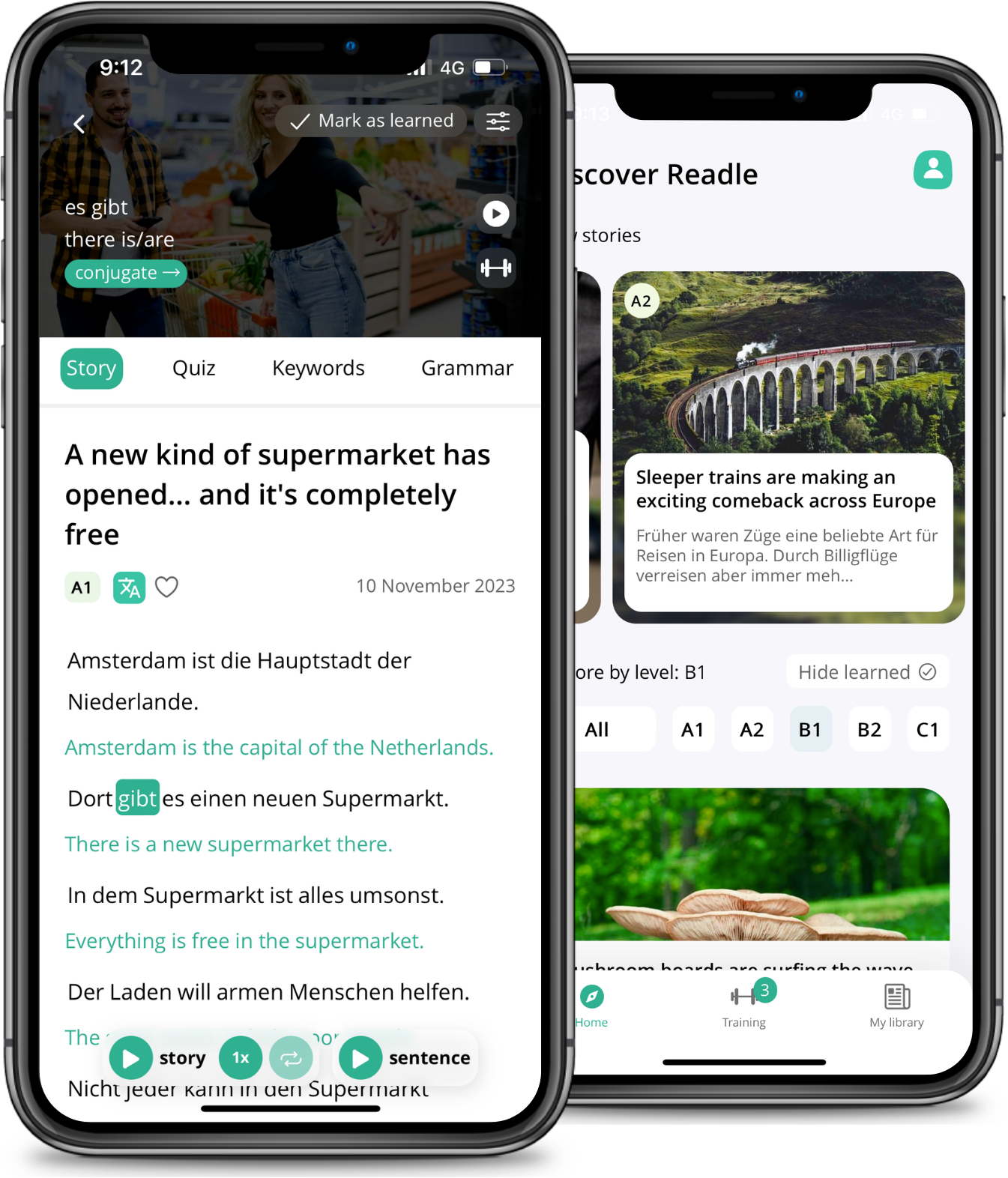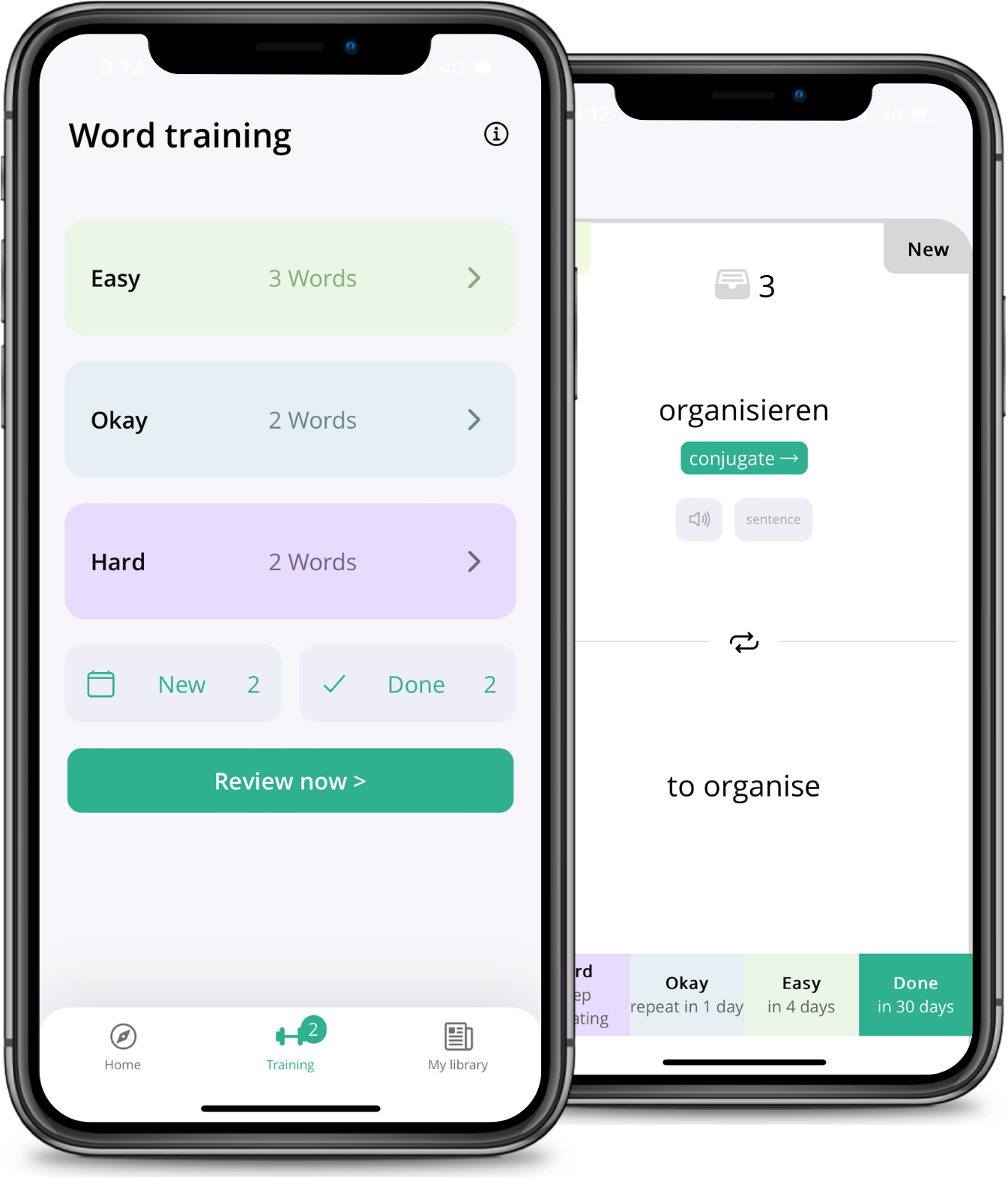4.8
AVERAGE RATING
500,000
DOWNLOADS
SCIENTIFICALLY
PROVEN METHOD
WHAT REAL USERS SAY ABOUT READLE
What a great app!
I like that the stories are short, so I avoid the risk of losing concentration before the end and becoming demotivated, as it can happen when reading from other sources. The items varied, not just negative news. The built-in dictionary works very well and allows you to check quickly without breaking concentration. I will certainly recommend it to other German learners that I know. I just wish I had had it earlier in my German learning journey. Thanks to the team and best of luck!
Natural language, great learning tool
You’ll learn German words in the context they’re written which helps with memory retention. Comprehension quizzes get harder as you read higher levels. Grammar examples are helpful to direct your attention to the sentence structure. They also have flashcards!
This is my favorite app to learn German
Having a dedicated app that focuses primarily on reading by offering stories written by the levels A1, A2, B1, B2, etc. is critical for reading progression. Having built in word definitions and grammar lookup is awesome. And then having audio by word, sentence, and the entire story PLUS the option to control the audio speed is incredible. You need this app if you are serious about learning German.
One of my favorite German learning apps to date.
It mixes context-based learning of vocabulary and grammar with the option for flashcard-like memorization and reinforcement of user-selected words. The articles are interesting and cover a diverse array of topics to keep the user engaged. Overall, I think the concept and execution of this app is one of the best I’ve come across in my language learning journey thus far.
Wow! A very good app!
I just started using it but very impressed with the audio and the whole setup of this app. Good job to all who developed this program. I will learn so much from this.
STAY MOTIVATED TO LEARN WITH READLE

Readle
Traditional textbooks
Frequently asked questions
What is Readle?
Readle is the world’s first CEFR-graded language-learning reader for learning German, French, Spanish, English, Japanese or Chinese. Readle provides premium, instant translations with one tap, audio from native speakers, and grammar explanations for every story.
How do I know that Readle works for me?
When tested on graded reading, we found that university students processed and retained vocabulary much faster when using Readle to learn. They also enjoyed the process more than learning with traditional reading and listening material.
Are Readle story lessons free to read?
Learners can check in occasionally to take advantage of our rotating free stories, but unlimited access to all stories at once does cost a small fee, which we use to keep improving Readle.
Is Readle the right tool for me?
Readle is best suited for learners with a basic understanding of German, French, Spanish, English, Japanese, or Chinese and who want to expand their vocabulary rapidly.
I have feedback. How can I reach you?
We welcome feedback! Please send your suggestions to [email protected]




